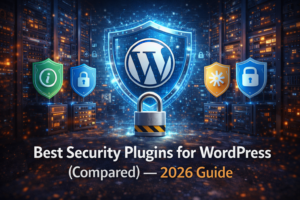How to Boost WordPress Website Speed: Best Practices & Tools
Learn how to improve WordPress website speed with essential optimization techniques and tools. Boost performance, enhance user experience, and improve SEO with these simple steps.
Website speed is essential for user experience, SEO, and conversions. A fast website keeps visitors engaged and improves rankings. Here’s how to optimize your WordPress site for speed:
- Use Caching: Caching stores static versions of your pages to speed up loading times.
Tools: WP Super Cache, W3 Total Cache, WP Rocket. - Optimize Images: Compress images without losing quality to reduce load times.
Tools: Smush, ShortPixel, TinyPNG. - Minimize Files: Minify CSS, JavaScript, and HTML files to reduce their size.
Tools: Autoptimize, WP Rocket. - Implement a CDN: A CDN caches content on multiple servers to deliver faster loading speeds globally.
Tools: Cloudflare, KeyCDN. - Choose the Right Hosting: Your hosting provider plays a key role in your website’s speed. For better performance, consider upgrading from shared hosting to VPS or managed WordPress hosting.
Premium Providers: Kinsta, WP Engine, and SiteGround are optimized for WordPress, offering excellent performance, support, and scalability.
Affordable Options: Hostinger, Bluehost, and DreamHost are great for smaller websites with budget constraints but may not offer the same high-end features and scalability.
WordPress.com: Best for basic users or blogs, but lacks flexibility and advanced features compared to self-hosted WordPress. - Enable GZIP Compression: GZIP reduces the file sizes of your content before it reaches the user’s browser.
Tools: WP Rocket, W3 Total Cache. - Leverage Lazy Loading: Load images and videos only when they are in view to improve page load times.
Tools: Lazy Load by WP Rocket, a3 Lazy Load. - Clean Your Database: Remove unnecessary data like old revisions and spam comments.
Tools: WP-Optimize, WP-Sweep.
Conclusion
Implementing these strategies will help optimize your WordPress website’s speed, enhancing user experience and improving SEO. Regular optimization is key to maintaining a fast site.
Was this helpful?
Thanks for your feedback!


